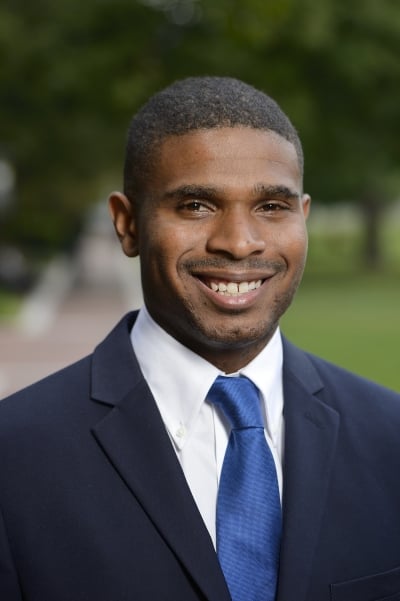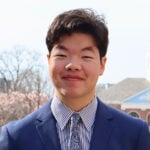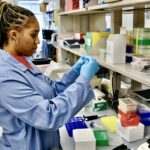World Changer

In December 2023, Quinton Smith, PhD ’17, was heralded as one of the year’s “Top 10 scientists on the cusp of changing the world” by Popular Science magazine. The periodical’s annual “Brilliant 10” honors early-career researchers under the age of 40 who stand out as innovators and changemakers in their fields.
Smith works at the vanguard of engineering and stem cell biology research in efforts to create “organoids”—tissues grown from stem cells that mimic our organs and can be used to show how organs interact with drugs.
The science behind personalized regenerative medicine begins when “you take a mature cell from various origins such as the skin, hair, or fat, and reprogram it into an embryonic state,” says Smith, who joined the Henry Samueli School of Engineering at the University of California, Irvine in 2021 as an assistant professor in chemical and biomolecular engineering. “This so-called human induced pluripotent stem cell (hiPSC) technology offers the ability to regenerate any cell in the human body.”
By adding certain chemical factors, Smith and his team of six PhD and two postdoctoral scholars in his Integrated Developmental Design Laboratory can change hiPSCs into any type of human cell. “We’re [currently] making a representation of a liver—a so-called ‘organ on a chip’—without the ethical constraints that come with human embryonic stem cell research,” says Smith. He notes that the liver has more than 500 different functions, including the metabolization of drugs. “By creating liver tissue from stem cells,” he says, “we can study drug efficacy to develop new medications for treating ailments, such as nonalcoholic fatty liver disease.”
While earning his undergraduate degree in chemical engineering from the University of New Mexico, Smith attended the Johns Hopkins Institute for NanoBioTechnology (INBT) Research Experience for Undergraduate Program. He says that his passion for stem cell research began during the two summers he spent under the guidance of Sharon Gerecht, a former Johns Hopkins faculty member and director of INBT, who later became his PhD advisor when he joined Johns Hopkins for his graduate degree.
Smith says the recent honor from Popular Science is a humbling experience. “I’m just a product of the great mentorship and research environments that I’ve been fortunate to be involved in.”
Story by Nikolas Charles and featured in the JHU Engineering Magazine Spring 2024 edition.





